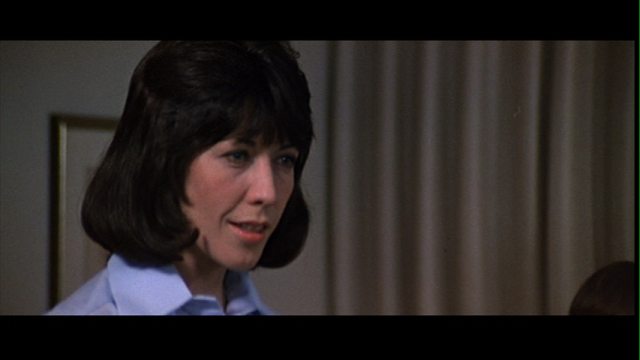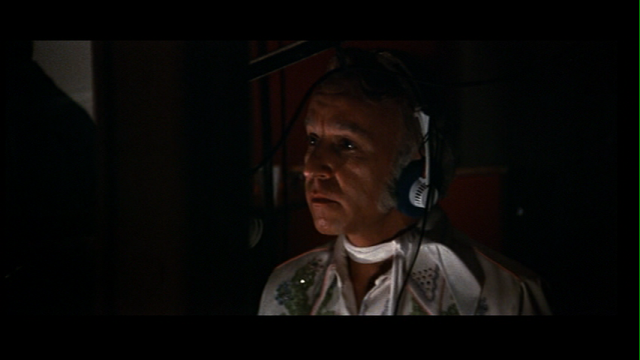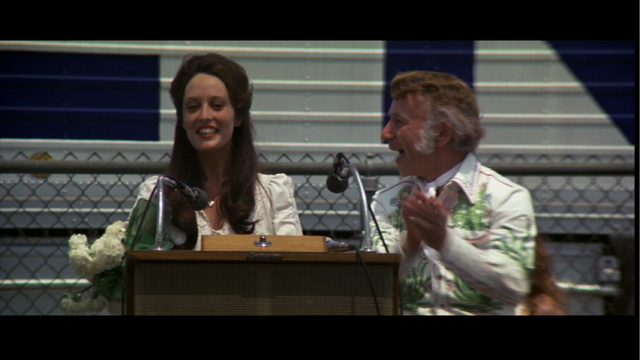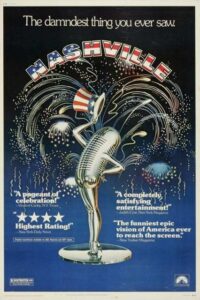|
Genres, Themes, Actors, and Directors:
- Allen Garfield Films
- Aspiring Stars
- Barbara Harris Films
- Ensemble Cast
- Geraldine Chaplin Films
- Jeff Goldblum Films
- Karen Black Films
- Keenan Wynn Films
- Keith Carradine Films
- Lily Tomlin Films
- Michael Murphy Films
- Musicals
- Musicians
- Ned Beatty Films
- Robert Altman Films
- Scott Glenn Films
- Shelley Duvall Films
Response to Peary’s Review:
Peary refers to this classic Altman ensemble flick as a “crazy-quilt vision of America”, noting that the “excitement of [the] film comes from Altman’s innovative storytelling techniques, how he plays musical chairs with his characters’ destinies, moving them in and out of each other’s lives until they all gather together for the tragic ending.” However, while he concedes that “the actors are well chosen and their characters make strong initial impressions”, he complains that “few are developed sufficiently”, and further notes that “the reason [he] can’t ever fully appreciate this picture is that, with the exception of Henry Gibson’s parody songs, none of what Altman and music director Richard Baskin try to pass off as country music… is country music.” He complains in particular about the songs sung by “Ronee Blakley as the Loretta Lynn-like Barbara Jean and Karen Black as the Tammy Wynette-like Connie White”, insisting that “it’s not fair to pass off these two as the best country music has to offer.” He argues that the “music works best [in part] when we’re watching Lily Tomlin and a black chorus perform gospel music” — an ironic statement, given that Tomlin’s singing voice (c.f. Altman’s last film, A Prairie Home Companion, as well) really isn’t all that strong or impressive.
Tomlin’s acting, however, is another matter altogether: her role here as the mother of two deaf children, intrigued and bothered by insistent phone calls from an aggressive rock star (Keith Carradine), is quite impressive, and she deserved her Oscar nomination — as did Ronee Blakley in what is arguably the film’s “central” (or at least most pivotal) role. Indeed, the entire ensemble cast is in fine form — and while it may be true, as Peary points out, that none of their characters are “developed sufficiently”, this is simply part of Altman’s unique vision for the story; to give each of them more screentime would require a mini-series (not a bad idea, really!).
While I agree with Peary that “this is a cynical film”, I’m not sure I believe that “Altman and [screenwriter Joan] Tewkesbury are condescending toward” the characters, given that they simply represent a cross-section of America, flawed aspirations and all. As Peary notes, “almost all of these people are unhappy or pathetic” — and several subplots hint at the quiet tragedies of their lives: Gwen Welles’ pathetic insistence on trying to “make it” as a singer despite lacking any talent; Blakley’s unhinged attempt at a comeback, which is met with jeers by her suddenly unsupportive fans; and Carradine’s mind-boggling treatment of Tomlin. It’s to Altman’s enormous credit, then, that we remain so invested in these diverse characters’ lives, despite the gloominess that pervades.
Redeeming Qualities and Moments:
- Lily Tomlin as Linnea

- Henry Gibson as Haven Hamilton

- Ronee Blakley as Barbara Jean

- Gwen Welles as Sueleen

- Memorable supporting performances by the remaining cast members
Must See?
Yes, as a genuine classic of American cinema.
Categories
- Genuine Classic
- Important Director
(Listed in 1001 Movies You Must See Before You Die)
Links:
|





One thought on “Nashville (1975)”
A no-brainer must-see – multiple times.
Altman is a director I very much admire – even if he is one who has disappointed me more times than not. I’ve thought about that – and it seems to me that his projects (a number of them very dubious) were not always up to the ambition he brought to them. However, at least a handful of times, there was a perfect marriage of project and artistic energy.
‘Nashville’ is clearly one of those times. It’s an absolute masterpiece. It actually boggles my mind how off Peary is in his assessment, and I can only think it’s one of those times that he just didn’t understand the film. (For example, how in the world do you develop a cast of characters “sufficiently” in 2h and 40m when there are 24 storylines? Aside from that, however…with only a few possible exceptions, we do pretty much learn all that we need to really know about these people. And what we don’t know about some of them is best and wisely left to our own interpretations.)
Before this rewatch – and even though I have a copy of the film – it had been several years since I watched ‘Nashville’. I was holding off until I could see it in blu-ray (which is very nice but the film doesn’t really benefit all that much from the blu-ray version). What impressed me most about the Criterion release is the ‘making of’ extra. It’s at least an hour long, interviews many cast members – and Joan Tewkesbury (speaking eloquently about the collaborative process) – individually, and (for me anyway) clears up a lot of questions I have always had about how this massive undertaking came together and was realized. It’s among the best ‘making of’ docs I think I’ve ever seen – and, in this case, is especially valuable because of the film it’s covering. Some say ‘Nashville’ may very well be the most important American film of the ’70s, and I think there’s a very strong argument for that. It capsulizes an entire decade so well (even before the decade was over) – and the film has not dated, since much of what we see in it still resonates.
While watching this time, I was pleased to be reminded of how quickly this long-ish film plays through. What accommodates that is the fact that (aside from scenes that include songs) most scenes in the film last about 30 seconds, as we fly from story to story.